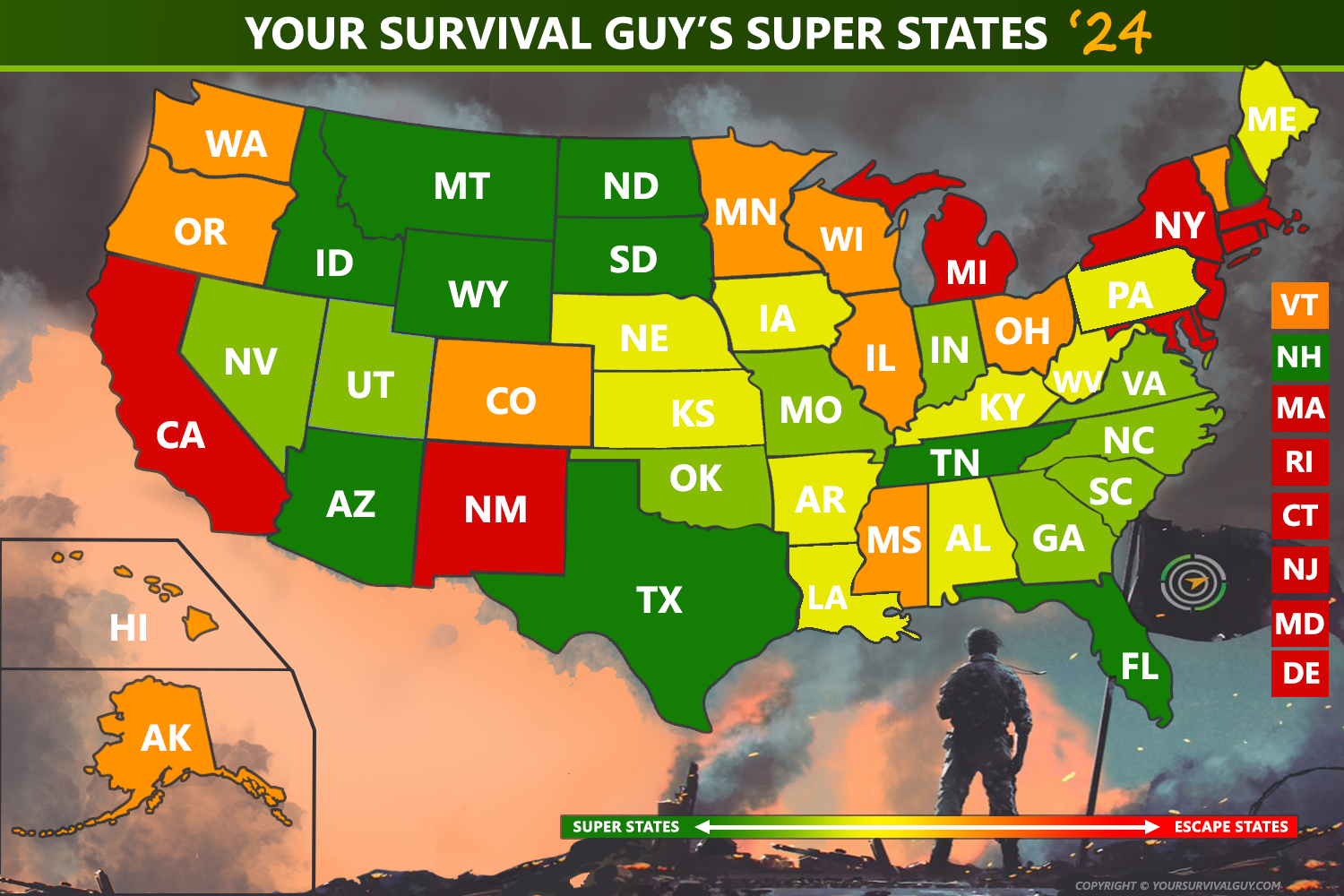
As the year draws to a close I want to review some of the most read posts on Yoursurvivalguy.com in 2017. These are the posts that got the most attention from readers like you.
The Last Issue of Intelligence Report
After Dick Young announced his last issue of Intelligence Report, I wrote a series of “What now?” posts for readers. Here’s an excerpt from Part III:
In his first issue of Richard C. Young’s Intelligence Report, Dick wrote, “Hugh Johnson is known worldwide as an expert and writer on gardening and wine. In Connoisseur’s June/85 issue Michael and Ariane Batterberry wrote about Johnson’s ability to communicate to his readers saying he ‘never pontificates,’ and that Johnson feels ‘once inflamed by a subject, the wise outsider will write a book about it before he learns too much and becomes an insider, so entangled in arcana that he can no longer strike through the nub of things.”
“I hope my Intelligence Report will achieve Johnson’s worthy goal of clarity and ease of understanding,” Dick wrote, and advised that you, “Take a pen and circle the items you find of most interest this month. You’ll be able to refer back to your highlights for easy future reference.”
Thanks to technology, with a few keystrokes, I have every word Dick Young ever wrote in Richard C. Young’s Intelligence Report at my fingertips. Within seconds, I can rewind to the year 1985, fast forward to 2003, and study passages that are just as relevant to today as when they were written.
Read more of my pieces on the Last Issue of Intelligence Report here.
Water Security
Another of the most popular pieces on Yoursurvivalguy.com this year was Water You’ve Already Stored for the Next Disaster. I wrote:
The first thing you want to do when it comes down to your water supply is to figure out your water sources. For example, we have town water and we live near a fresh water reservoir, but it’s at the bottom of a steep hill. It will be extremely difficult to gather water and carry it up the hill. But it can be done in small batches.
Next, you want to determine how much water you have on hand right now. The first place to look is your hot water heater capacity. Go online to see how to access water from your hot water heater in an emergency. Here’s a general sequence:
- turn off the electricity or gas to your hot water heater
- close the supply valve to the tank to preserve the quality of the tank water
- locate the valve at the bottom of the tank
- turn on the hot water at your kitchen sink to allow air flow
- attach a short hose or place a pan under the hot water tank valve
- open the valve
If there’s sediment don’t throw the water away. Simply strain it. And always boil the water to purify it.
Also consider that there’s a few gallons of water stuck in the pipes in your house. You can access this before you empty the hot water tank by simply collecting it in a container in your sink. Another source is the water in the tank behind your toilet assuming there’s no toilet cleaner.
That’s the water you already have. Next up, figuring out water storage.
The post was part of my extensive series on water storage and preparation. If you’re not 100% sure your family’s water security is set, read that series here today for help getting started on your water preparation journey.
Protect Your Vehicle from Theft
One other post that received a lot of attention on Yoursurvivalguy.com this year was Your Survival Guy: “My Car was Stolen.” Automotive security is something most Americans deal with at one level or another every day. In the piece I wrote:
Isn’t it cool that you can start your car with a push of a button? Technology is great. But what happens when the signal from your key fob is stolen?
It’s happening while victims are asleep, not at the wheel, but in their comfy bed.
Imagine all the car key fobs in your neighborhood.
They are silent beacons inviting criminals into your driveway or garage. Ever wonder how that emergency button’s signal can travel so far?
So have the criminals. And you don’t have to be pressing a button. Fobs send out a signal whether they’re in your pocket, on your desk, or hanging on your wall.
Criminals, using radio devices to copy your fob signal, amplify it, send it to your car, start it and off they go.
Once the car is started it doesn’t care where the fob/key actually is.
Criminals, using a device discussed in Wired, were able to break into a car 1,000 feet away from the owner.
Read the rest of the piece here to learn how to protect yourself.
Happy New Year!
Thanks for reading Yoursurvivalguy.com this year. I have lots more great content coming in 2018. Happy New Year!
Originally posted on Yoursurvivalguy.com.



